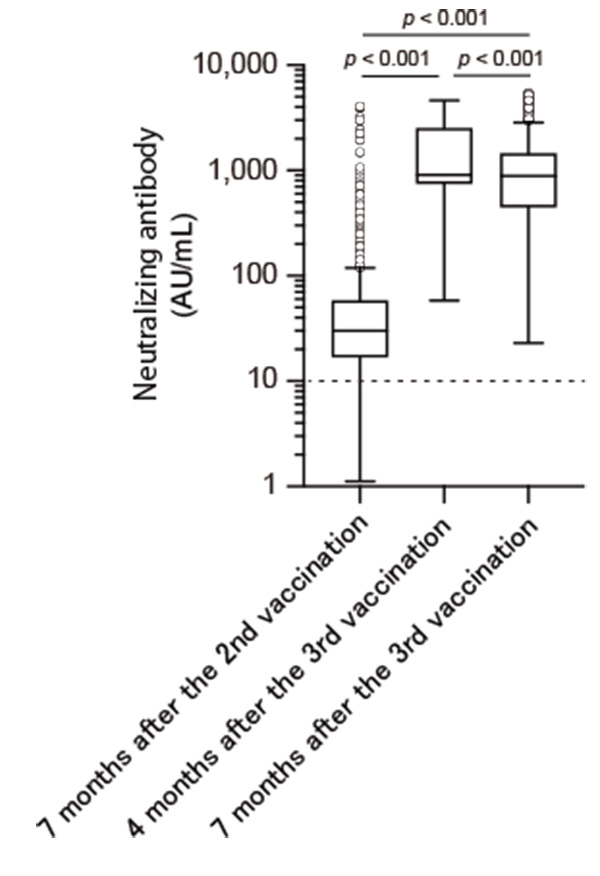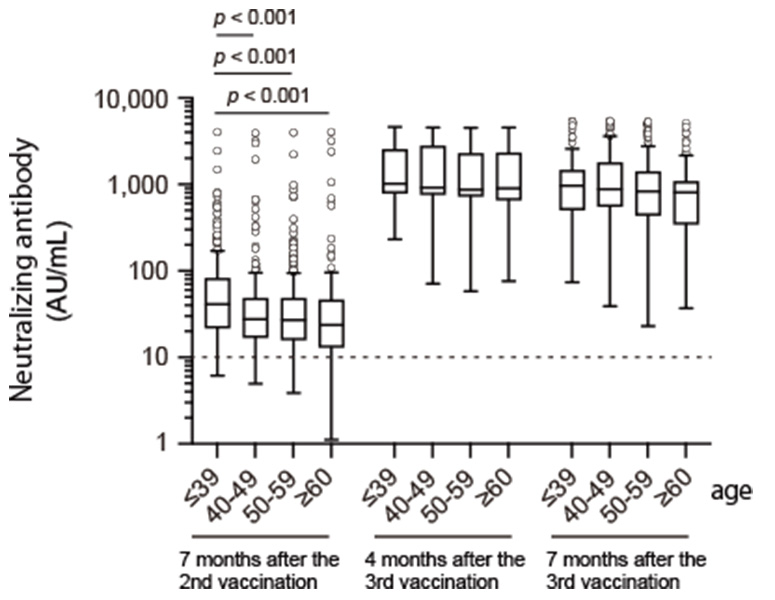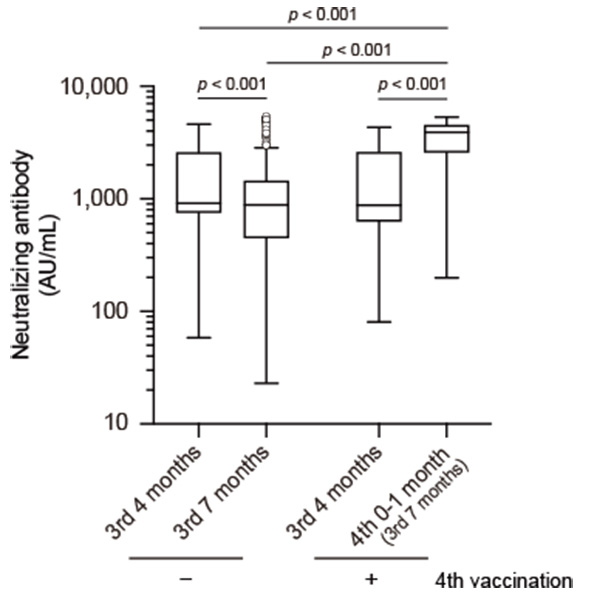
Booster vaccinations against severe acute respiratory syndrome coronavirus 2 (SARS-CoV-2) are being promoted worldwide to counter the coronavirus disease 2019 (COVID-19) pandemic. Recent studies on the effectiveness of the third dose of the vaccine found improved efficacy against SARS-CoV-2 infection and a reduction in hospitalization. However, most studies on the effect of the third vaccination have been limited to a relatively short period of time after the third dose, and few longitudinal analyses of the effects of the third vaccination with an anti−SARS-CoV-2 vaccine have been reported.
Dr. Takahiro Sanada, Dr. Tomoko Honda, and their colleagues from Vial infectious disease project analyzed the longitudinal effect of the third SARS-CoV-2 mRNA vaccination on antibody responses in healthcare workers in Tokyo, Japan. Additionally, antibody responses induced by the fourth vaccination were analyzed. The levels of anti-spike (S) IgG and neutralizing antibody against SARS-CoV-2 were measured at 7 months after the second vaccination (n = 1,138), and at 4 (n = 701) and 7 (n = 417) months after the third vaccination using an iFlash 3000 chemiluminescence immunoassay analyzer (YHLO). Among the 417 participants surveyed at 7 months after the third vaccination, 40 had received the fourth vaccination. A multiple linear regression analysis was performed to clarify which factors were associated with the anti-S IgG and neutralizing antibody. Variables assessed included sex, age, number of days after the second or third vaccination, diagnostic history of COVID-19, and anti-nucleocapsid (N) IgG level.
At 7 months after the third vaccination, antibody responses were significantly higher than those at the same time after the second vaccination (Figure 1). Unlike the second vaccination, age had no effect on the antibody responses induced by the third vaccination (Figure 2). Furthermore, the fourth vaccination resulted in a further increase in antibody responses (Figure 3). The multiple linear regression analysis identified anti-N IgG level, presumably associated with infection, as a factor associated with antibody responses.



This work demonstrate that strong and persistent antibody responses were induced after SARS-CoV-2 mRNA booster vaccinations. These data are expected to be useful for vaccination scheduling.
This work was financially supported by the Tokyo Metropolitan Government, Japan.